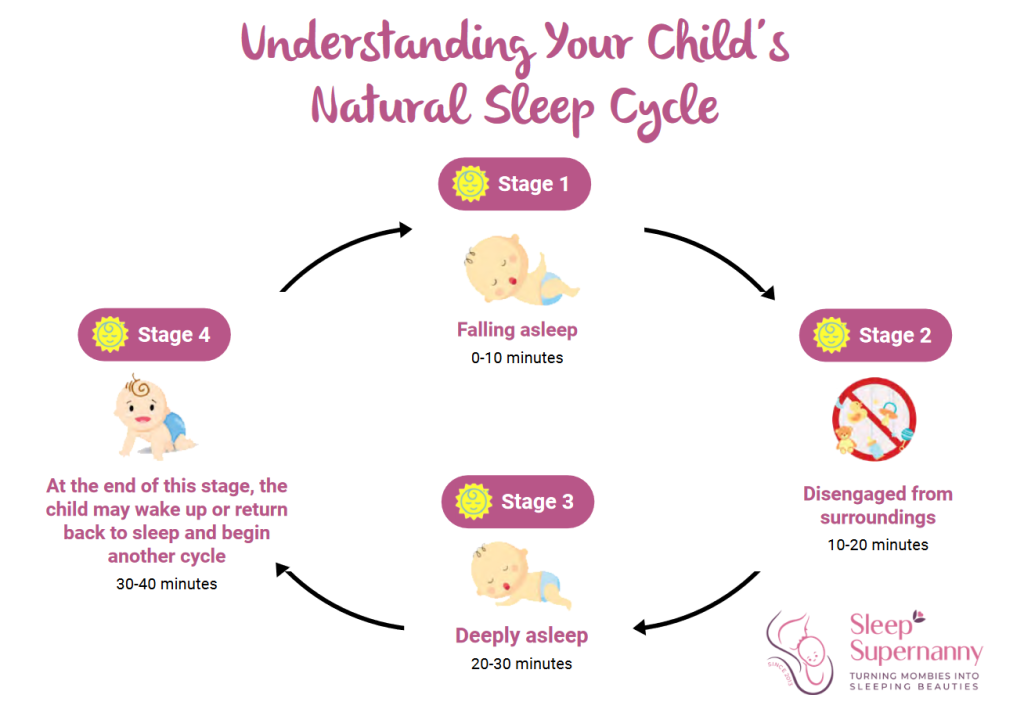What Are Baby Sleep Cycles?
Baby sleep cycles differ from adult sleep patterns. Newborns have shorter cycles, around 50-60 minutes, moving through light and deep sleep phases more frequently than older children and adults. This means babies wake up more often, which is normal and necessary in the early months.
Key Points About Baby Sleep Cycles:
- Shorter Cycles: Unlike adults, who have 90-minute sleep cycles, babies’ sleep cycles are shorter, making them more prone to waking up.
- More REM Sleep: Babies spend more time in Rapid Eye Movement (REM) sleep, which is essential for brain development.
- Frequent Night Wakings: Babies naturally wake more often at night, especially in the first few months, which is part of their biological need for frequent feedings.
Understanding these cycles can help set realistic expectations and guide you in creating a sleep-friendly environment for your baby.

Leave a Reply